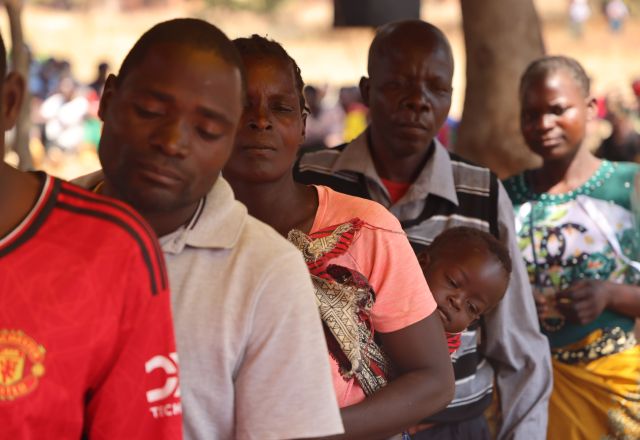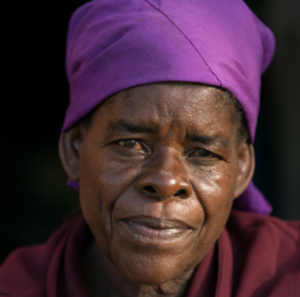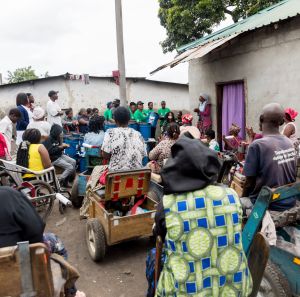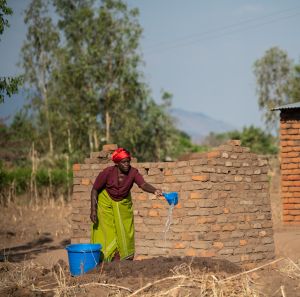People in Malawi are struggling to have a steady supply of food.
Less rainfall and dry conditions mean that people can’t grow enough food for their families. Elizabeth Daniel and her husband live in a village in Mchinji district in the central region of Malawi. They usually expect their field to produce around 17 buckets of maize each year. This year, they only managed to harvest one and a half buckets. Sometimes they sleep on an empty stomach, and they survive day-to-day.
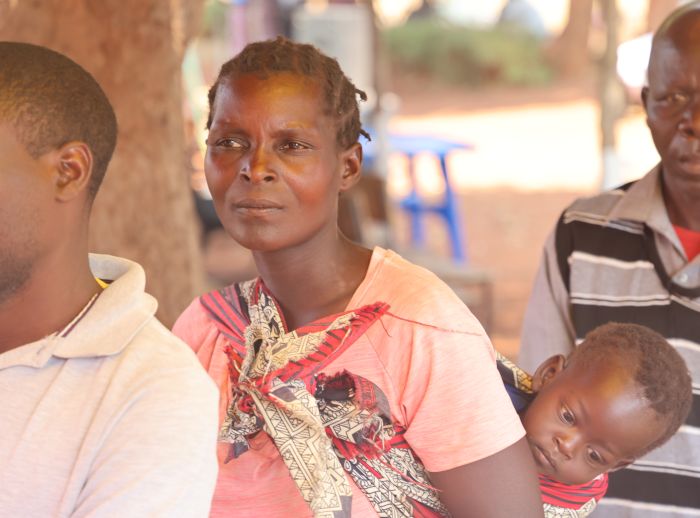
Oxfam and our partner are delivering cash assistance for food to people like Elizabeth.
Elizabeth’s family only had a small amount of flour left on the day they received their cash assistance. Elizabeth notes that the money has allowed her to buy food and other essential things for her five children.
The early harvest, prompted by a lack of food, left them with little to carry them through the season. Sometimes they sleep on an empty stomach, she explains life as surviving day to day.
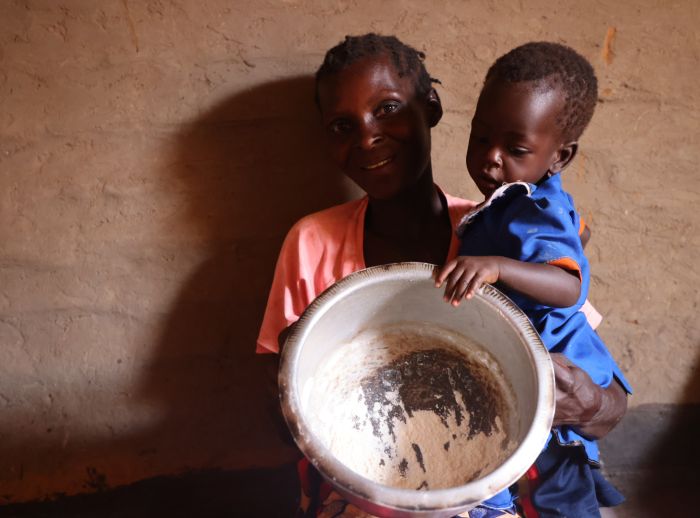
The early harvest, prompted by a lack of food, left them with little to carry them through the season. Sometimes they sleep on an empty stomach, she explains life as surviving day to day.
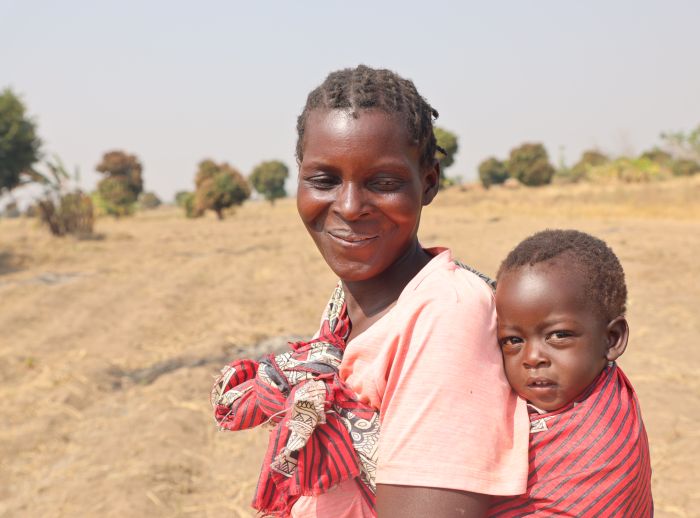
Elizabeth plans to use some of the money to buy maize and manure for the next planting season. She is preparing and hoping for better crop-growth in the future. The challenges are still there, but the cash assistance has allowed the family to meet their immediate needs.
Elizabeth’s family relies on farming, mat making and “Ganu.” This is a form of short-term, manual labor such as cutting grass and harvesting. This work is often unsteady and poorly paid, making it difficult to provide for her children, including her 13-month-old daughter, Gertrude.
With the current low harvest, there are fewer work opportunities. Elizabeth sometimes finds work clearing fields. This is physically demanding, and she earns approximately 2,000 Malawian Kwacha (about €1) per day from this.
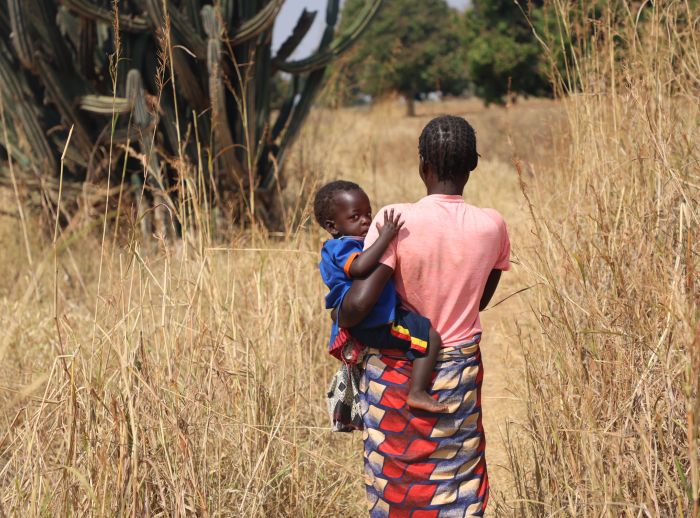
Elizabeth’s family relies on farming, mat making and “Ganu.” This is a form of short-term, manual labor such as cutting grass and harvesting. This work is often unsteady and poorly paid, making it difficult to provide for her children, including her 13-month-old daughter, Gertrude.
With the current low harvest, there are fewer work opportunities. Elizabeth sometimes finds work clearing fields. This is physically demanding, and she earns approximately 2,000 Malawian Kwacha (about €1) per day from this.
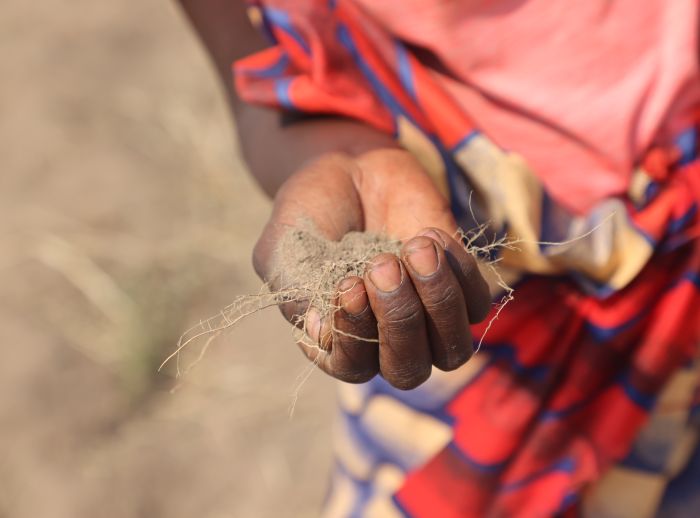
The 2024 El Niño season is bringing dry conditions and less rainfall than usual across Malawi and other countries in Southern Africa. El Niño is a climate pattern that causes unusual warming of surface waters in the eastern Pacific Ocean, which in turn causes drought and other challenges which impact agriculture and food security in the area. A state of disaster was declared in 23 districts in Malawi, due to the severe impact of El Niño on this year’s crop season.
Through Ireland's Civil Society Partnership (ICSP) programme, Oxfam in Malawi has provided cash-based food assistance of 50,000 Mwk (€26) to over two thousand households. This work is supported by local partner organisations, Evangelical Lutheran Development Service (ELDS) and Concerned Youth Organisation (CYO).
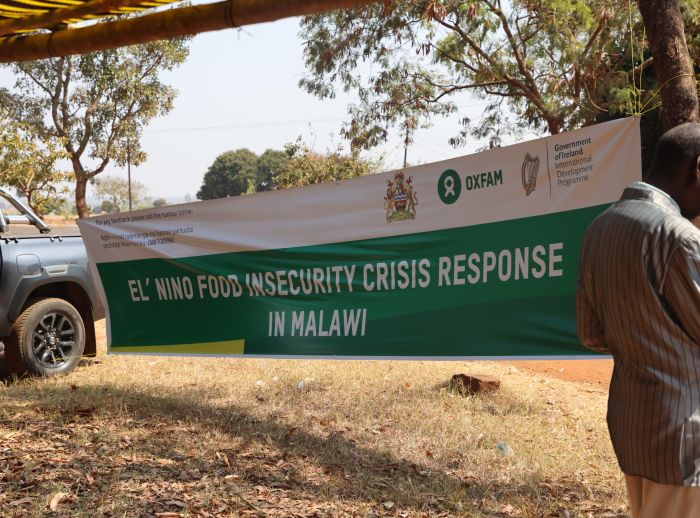
Through Ireland's Civil Society Partnership (ICSP) programme, Oxfam in Malawi has provided cash-based food assistance of 50,000 Mwk (€26) to over two thousand households. This work is supported by local partner organisations, Evangelical Lutheran Development Service (ELDS) and Concerned Youth Organisation (CYO).
